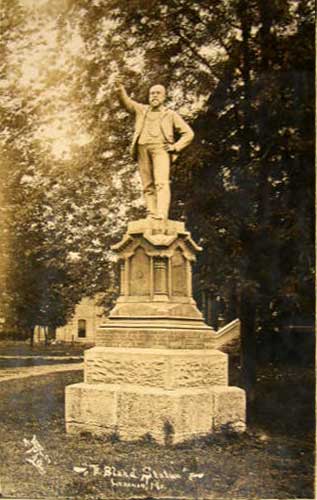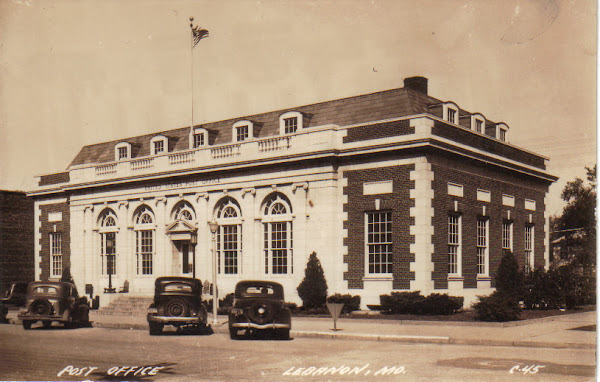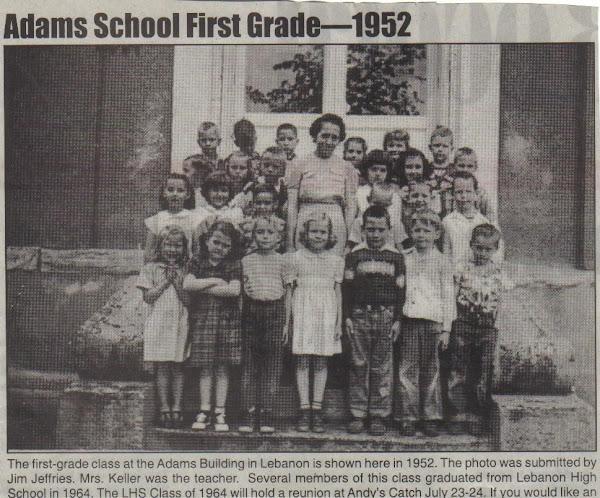How 'bout writing some memories of your times at the Laclede County Fair seeing as how next week is fair time here again.
I can remember loving to go to the fair when I was a little girl, but for the life of me I can't remember where it was held, over by Nelson Park somewhere, maybe? Or was it somewhere else before it was over there?
I loved the carnival part, doing a few of the rides, and eating cotton candy. Back then I didn't think I could get enough of it. Come to think of it, I still could eat more than was good for me....making me hungry.
Then I think it was 1958 when I got a look at the livestock barn, firsthand. I wasn't raised a "country girl", didn't have any 4H training, but that year I was madly in love with Jim Ragland (don't tell Milan) and Jimmy was showing cattle, and Joyce Jennings and I walked over to the fairgrounds, wherever they were, and I was able to spend some time with Jimmy while he washed and groomed his cows. Now that's true love if I ever saw it.
I always enjoyed going inside and looking at the exhibits. So many pretty things, especially that fresh garden produce.
Then I remember when Mila Jo was about 11 or 12, we enrolled her in the talent contest, and she won first place playing the piano. So.........we enrolled her the next year and she did a marvelous job and we thought surely she would win again, but she didn't make it because they took off points because the JUDGE DIDN'T LIKE HER SHOES....DIDN'T THINK THEY WERE APPROPRIATE FOR PLAYING THE PIANO!!!! I still remember it, they were little red flats matching her dress. What did that have to do with the price of tea in China? I stalked out "madder than an old wet settin' hen" and rightly so, I might add.
As a New York Life agent in the late 80s I spent a great deal of time manning my table, passing out little goodies, and getting people to sign up for a drawing so I would have a new list of prospects for the coming year. Still lovin' that fair food - remember eating a lot of greasy curly fries that week. Nothin' as good as greasy french fries (and I'm not being sarcastic), McDonalds taste like plastic compared to fair fries, and those fantastic fries Vern served in his little cafe - oh man, will they ever make anything like that again.
But I digress. Back to the fair, to which we don't go any more, haven't been in years. They want too much money, and you have to park way too far away for an elderly handicapped woman. It just isn't worth it. But we only miss seeing it, we hear it every moment of the day, 24/7 all week long, since we live just one block north of the Civic Center etc. I can tell you who wins the tractor pulls before the person in the back row of the stands knows!
But my memories are good, and I suppose there will be little kids out there making memories next week, and star struck teenagers, as well.
Tuesday, July 3, 2007
Subscribe to:
Comments (Atom)
Current discussion on "Banishment during Civil War"
RE: [ourhistory] Banishment during the Civil War
Ann,
My gg-grandfather Ephraim Davis who was 33-36 at the time removed his family including my g-grandfather Alonzo (3 yrs old) and Harve (5 yrs old) to Illinois during the Civil War and returned afterwards. It is said he did this to protect his family, but on the return trip his wife and newly born daughter died and are buried near Rolla
I Googled ‘Banishment during the US Civil War” and found a couple of interesting notes on banishment
Note 1
Banishment to the South was a favored Yankee method of dealing with Southern sympathizers in their midst, though being a sympathizer did not necessarily mean being a spy. Many women were forced into exile under the threat of more severe punishment for offenses ranging from publicly denouncing an occupying army to actually giving information to the enemy. When Henrietta Barr's sister, Sarah Cotton, was arrested, Barr wrote in her diary:
"After 12 o'clock at night, Friday the 17th, Sarah was arrested and taken over the lines without a word of a trial. She was torn from her little children and threatened if she dared return that she would be `shot as a spy.' Comment is unnecessary."
Note 2
In response to widespread criticism of his suspension of the writ of habeas corpus and the banishment of Vallandigham, Lincoln wrote a long letter to Democratic Party leaders defending his actions. Lincoln declared that the regular civilian courts were inadequate during a rebellion. He claimed that those opposing the Unions cause endangered "the public safety." Ordinarily, he wrote, such people could not be arrested since criticizing the government was not a criminal offense. If such persons were arrested, they would undoubtedly be released on a writ of habeas corpus by a civilian court judge. The necessary solution, Lincoln argued, was to suspend the writ and lock up the troublemakers until the war ended.
As for Vallandigham, Lincoln charged that he was encouraging desertions from the Union army. "Must I shoot a simpleminded soldier boy who deserts," Lincoln asked, "while I must not touch a hair of a wily agitator who induces him to desert?"
After Vallandigham was banished to the South, his friends went to the U.S. Supreme Court in an attempt to convince the justices to hear the case. On February 15, 1864, the Supreme Court announced it would refuse to hear the case, saying that it had no authority to review the proceedings of a martial law court. While the bloody Civil War raged on, the Supreme Court decided it was not the time to challenge the power of General Burnside or his commander-in-chief, Abraham Lincoln.
Note 3
Rowland Family, Papers, 1844-1893, (C2244)1 folder(s)Includes letters from Robert A. Rowland to his wife Olive in Howard County, MO, while he was enroute (1849) and in California (1850) and during his imprisonment and banishment to Illinois during the Civil War. Also includes miscellaneous letters from other family members and newspaper article describing death of and memorial services for I.N. Rowland (1893).
Bill Henry
Ann,
My gg-grandfather Ephraim Davis who was 33-36 at the time removed his family including my g-grandfather Alonzo (3 yrs old) and Harve (5 yrs old) to Illinois during the Civil War and returned afterwards. It is said he did this to protect his family, but on the return trip his wife and newly born daughter died and are buried near Rolla
I Googled ‘Banishment during the US Civil War” and found a couple of interesting notes on banishment
Note 1
Banishment to the South was a favored Yankee method of dealing with Southern sympathizers in their midst, though being a sympathizer did not necessarily mean being a spy. Many women were forced into exile under the threat of more severe punishment for offenses ranging from publicly denouncing an occupying army to actually giving information to the enemy. When Henrietta Barr's sister, Sarah Cotton, was arrested, Barr wrote in her diary:
"After 12 o'clock at night, Friday the 17th, Sarah was arrested and taken over the lines without a word of a trial. She was torn from her little children and threatened if she dared return that she would be `shot as a spy.' Comment is unnecessary."
Note 2
In response to widespread criticism of his suspension of the writ of habeas corpus and the banishment of Vallandigham, Lincoln wrote a long letter to Democratic Party leaders defending his actions. Lincoln declared that the regular civilian courts were inadequate during a rebellion. He claimed that those opposing the Unions cause endangered "the public safety." Ordinarily, he wrote, such people could not be arrested since criticizing the government was not a criminal offense. If such persons were arrested, they would undoubtedly be released on a writ of habeas corpus by a civilian court judge. The necessary solution, Lincoln argued, was to suspend the writ and lock up the troublemakers until the war ended.
As for Vallandigham, Lincoln charged that he was encouraging desertions from the Union army. "Must I shoot a simpleminded soldier boy who deserts," Lincoln asked, "while I must not touch a hair of a wily agitator who induces him to desert?"
After Vallandigham was banished to the South, his friends went to the U.S. Supreme Court in an attempt to convince the justices to hear the case. On February 15, 1864, the Supreme Court announced it would refuse to hear the case, saying that it had no authority to review the proceedings of a martial law court. While the bloody Civil War raged on, the Supreme Court decided it was not the time to challenge the power of General Burnside or his commander-in-chief, Abraham Lincoln.
Note 3
Rowland Family, Papers, 1844-1893, (C2244)1 folder(s)Includes letters from Robert A. Rowland to his wife Olive in Howard County, MO, while he was enroute (1849) and in California (1850) and during his imprisonment and banishment to Illinois during the Civil War. Also includes miscellaneous letters from other family members and newspaper article describing death of and memorial services for I.N. Rowland (1893).
Bill Henry
Bennett Spring Hotel








.jpg)











.jpg)

